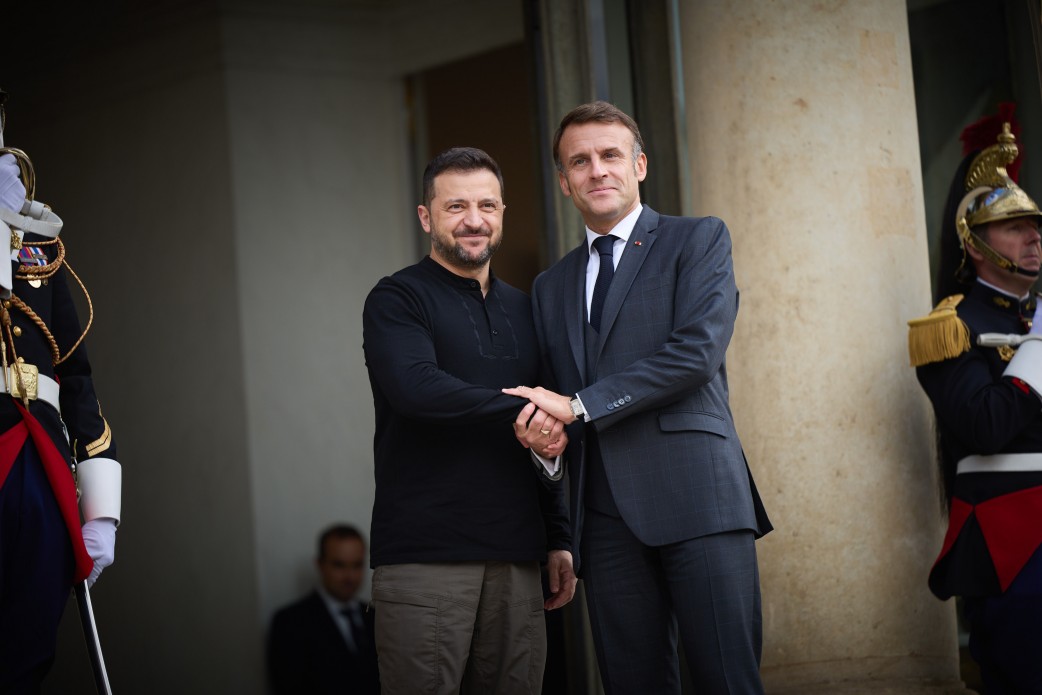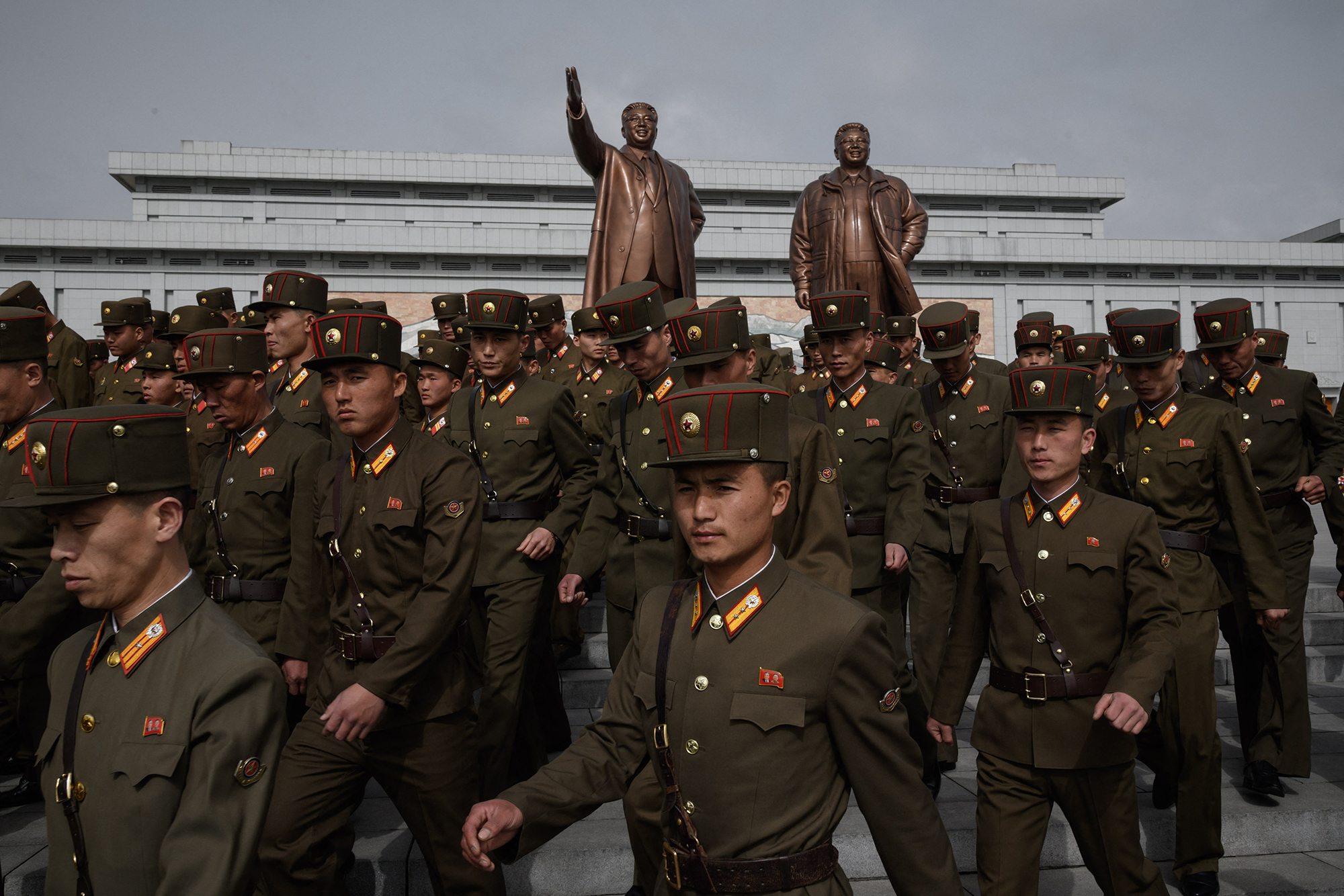Peaceful plans for victory: Should we expect a swift end to the war with Russia?
Regarding the prospects for a swift end to the war, Western pressure on the Ukrainian government, invitation to NATO, "peace plans," and the significance of the American elections – in the column by Milan Lelich, deputy editor-in-chief of RBK-Ukraine.
"There is a feeling that everything might somehow end next year." This phrase, in various forms, has been heard by RBK-Ukraine from many representatives of the Ukrainian authorities. However, none of them could explain how exactly this would happen. Between the current situation on the front lines and the balance of power in the world, as well as the desired conclusion of the war for Ukraine, lies a dark zone. It is extremely challenging to fit concepts like "just peace," the West's perpetual fear of "escalation," guarantees against new Russian aggression, the sentiments of Ukrainian society, the realities on the battlefield, and so on, into a single equation.
In recent weeks, there has been yet another avalanche of publications in Western media regarding the "end of the war." Overall, they suggest that Ukraine is slowly but surely losing the war, that Russia has greater resources, that victory over it on the battlefield is impossible, and therefore Kyiv should abandon maximalist goals – a sentiment encouraged by the West, while the Ukrainian government finally signals its readiness for concessions.
Ukrainian officials typically ignore such publications or reiterate the tenets of Zelensky's "peace formula" – the ideal vision of Ukraine for a just conclusion to the war. However, sometimes there are direct denials.
For instance, during a recent visit to France, Zelensky stated that there is no talk of any "ceasefire" or "truce" in discussions with his Western counterparts. Earlier, the Ukrainian Foreign Ministry directly refuted the Financial Times' thesis about a possible "exchange" of currently occupied territories by Russia for the accession of the free part of Ukraine to NATO or "equivalent security guarantees."
 Vladimir Zelensky and Emmanuel Macron (photo: president.gov.ua)
Vladimir Zelensky and Emmanuel Macron (photo: president.gov.ua)
According to an RBK-Ukraine source familiar with the various negotiations between Ukraine and the West, there is indeed no discussion of such a frontal "exchange." Ukraine will not relinquish any part of its legitimate territory under any circumstances. A freeze of the war along the current frontline, without signing any memoranda or agreements, is also an option that, according to RBK-Ukraine's information, is being considered in some European capitals – which is also unacceptable for Ukraine.
However, a compromise might involve returning to the status quo before the full-scale invasion, meaning the "borders of February 23, 2022." At that point, ORDLO and Crimea would still be universally recognized as Ukrainian territory – but their return is expected to occur not through military means but through diplomatic channels. Zelensky has publicly stated multiple times that the 1991 borders may not necessarily be achieved solely through the use of force.
"In essence, we have always been somewhat ready for the 'February 23 borders.' But the problem is that de facto we are currently far from those borders," says a source close to him.
Indeed, given the current realities, it is hard to envision a scenario where Russian troops in the occupied Berdyansk or Starobilsk voluntarily withdraw, take down the tricolor flags from administrative buildings, load into trucks, and leave towards Rostov.
And while the "comparatively greater flexibility" of the Ukrainian government in negotiations about ending the war exists mainly on the pages of Western media, the increased pressure from the West, its hints at the overambitious Ukrainian goals, and unrealistic expectations are facts confirmed by RBK-Ukraine's sources.
Recognizing that discussions about the "end of the war" have been, are, and will continue to be, Ukraine is trying to seize the initiative in this process, constantly generating new plans, meetings, and forums. The principle is simple: if you don't speak, others will speak for you.
So far, among all the peace initiatives, the key one is the "victory plan," which Zelensky has presented to many Western partners and will publicly present in the Verkhovna Rada today.
An RBK-Ukraine source within the government "positively" assessed Zelensky's American trip and his recent meetings with key European leaders, primarily focused on the "victory plan."
But the problem lies in the specifics – as the plan includes, among other things, lifting the ban on strikes with Western weapons deep into Russia and Ukraine's Euro-Atlantic integration. On the first point, Western allies are not ready to comply, while on the second – the invitation for Ukraine to join NATO in one format or another – high expectations were placed on the canceled visit by American President Joe Biden to Germany and the high-level meeting of the "Ramstein group." Overall, any movements toward a peaceful settlement are linked by RBK-Ukraine's sources to progress in the Euro-Atlantic direction.
However, the classic black swan intervened – Hurricane "Milton," and Biden decided to stay home. Sources within the government consider the official reason for canceling the visit to be quite plausible.
Indeed, with just weeks before the elections and considering the minimal gap in ratings between Kamala Harris and Donald Trump, the current administration must be extremely cautious in its actions. According to all polls, domestic political issues, such as prices, the state of the economy, and the abortion ban, concern the American electorate far more than wars in Ukraine and the Middle East. Therefore, the White House needs to avoid making sharp moves that could expose it to unnecessary criticism from Trump.
On the other hand, in Pennsylvania, which will likely decide the fate of the presidential elections, there is a significant Ukrainian and Polish diaspora, for whom the security of Eastern Europe (naturally from Russian aggression) is an important issue. All these risks are likely being weighed in Washington ahead of Biden's visit to Germany this week, albeit on a reduced schedule, no longer including "Ramstein."
Moreover, in discussions about possible formats for ending the war, it is often overlooked that any resolution will inevitably require a decision from the aggressor nation. Ukraine and the West can agree on anything – but if the Kremlin intends to continue the war, it will do so regardless of any "peace plans."
And the Russians, it seems, are in no hurry, slowly advancing in Donbas at a great cost. They are still far from their main goal, as described by an informed RBK-Ukraine source – the capture of all of Donbas. But again – time is not pressing them. Especially after they opened a new "ally" – North Korea, which will now supply the aggressors not only with ammunition but also with manpower.
 North Korean soldiers (photo: Getty Images)
North Korean soldiers (photo: Getty Images)
Sources at RBK-Ukraine are hesitant to describe the final goal of the Russian offensive. It is quite possible that there is no specific goal, and the war is proceeding on the principle of "we will capture as much as we can."
Like everyone else, Moscow is waiting for the outcome of the elections in the United States. Until then, hoping for any significant diplomatic breakthroughs appears unrealistic. Beyond that – it is terra incognita. Even a victory for the more predictable and systematic Harris suggests numerous scenarios for future developments. For example, one of the forks – will Joe Biden, at the end of his term, between the elections and the inauguration of his successor, make some notable gesture toward Ukraine that will become part of his political legacy, or not? The consequences of a Trump victory are unpredictable by anyone, including Trump himself.
In any case, Ukraine is entering a period of extraordinary turbulence, even by our standards. It is quite likely that the outcome of nearly three years (and if we consider it more broadly, even a decade) of war will be determined in the coming months. Although it is not a certainty – after the American pre-election dust settles, it may turn out that both sides, Ukraine and Russia, are fully capable and willing to continue their protracted struggle.